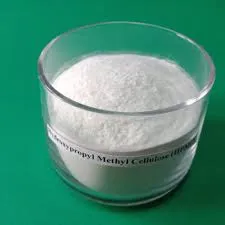
Aug . 19, 2024 23:27 Back to list
Exploring Hydroxyethyl Cellulose CAS Number Applications and Benefits in Various Industries
Hydroxyethyl Cellulose Properties, Applications, and Safety
Hydroxyethyl cellulose (HEC) is a non-ionic, water-soluble polymer derived from cellulose, a natural polymer obtained from the cell walls of plants. Identified by its CAS number 9004-62-0, HEC has gained significant attention in various industries due to its unique properties and versatility. This article delves into the characteristics, applications, and safety considerations associated with hydroxyethyl cellulose.
Properties of Hydroxyethyl Cellulose
HEC is primarily recognized for its thickening, stabilizing, and film-forming capabilities. Its solubility in water allows it to act as an effective rheology modifier, which means it can alter the flow properties of liquids without substantially changing their chemical properties. HEC forms a viscous solution that is stable across a range of pH levels and temperatures, making it suitable for various formulations.
One of the standout features of hydroxyethyl cellulose is its ability to provide a smooth, glossy finish to products. It also exhibits excellent water retention properties, which makes it an ideal ingredient in applications where moisture retention is crucial. Moreover, HEC is compatible with a wide range of surfactants, electrolytes, and other additives, enhancing its usability in diverse formulations.
Applications of Hydroxyethyl Cellulose
Hydroxyethyl cellulose has found a myriad of applications across several industries, including
1. Cosmetics and Personal Care HEC is commonly used in skincare products, shampoos, conditioners, and lotions. Its thickening properties improve the texture of these products, while its film-forming ability provides a protective barrier on the skin and hair.
2. Pharmaceuticals In the pharmaceutical industry, HEC serves as a binder and thickener in ointments and topical formulations. Its biocompatibility makes it an ideal candidate for drug delivery systems, particularly for controlled-release formulations.
hydroxyethyl cellulose cas no

3. Food Industry As a food additive, HEC is used as a thickener and stabilizer in various food products. It can improve the mouthfeel and texture of sauces, dressings, and dairy products, contributing to overall consumer satisfaction.
4. Construction and Building Materials In the construction sector, HEC is utilized in cement-based products, such as tile adhesives and grouts. Its water retention capability allows for better workability and adhesion of materials, ultimately leading to enhanced durability.
5. Textiles and Coatings HEC is employed as a textile finishing agent and in various coating applications. Its film-forming properties lend themselves to creating protective layers on fabrics and surfaces.
Safety and Environmental Considerations
Hydroxyethyl cellulose is generally regarded as safe for use in cosmetic and food products. Regulatory bodies, including the FDA and the European Food Safety Authority (EFSA), have set acceptable daily intake levels for HEC, highlighting its safety profile. However, it is essential for manufacturers to use HEC in accordance with established guidelines to ensure consumer safety.
From an environmental standpoint, HEC is derived from renewable cellulose sources, making it a more sustainable option compared to synthetic alternatives. Moreover, HEC is biodegradable, which reduces its ecological footprint when disposed of properly.
Conclusion
In summary, hydroxyethyl cellulose (CAS No. 9004-62-0) is an invaluable polymer with diverse applications across various industries. Its unique properties, such as thickening, stabilizing, and film-forming, enable it to enhance the performance and quality of products in cosmetics, pharmaceuticals, food, construction, and textiles. As industries continue to seek sustainable and safe ingredients, the role of HEC is likely to expand, further solidifying its position in the global marketplace. Through continuous research and development, hydroxyethyl cellulose remains a crucial component in the formulation of innovative solutions that meet modern consumer demands.
-
Versatile Hpmc Uses in Different Industries
NewsJun.19,2025
-
Redispersible Powder's Role in Enhancing Durability of Construction Products
NewsJun.19,2025
-
Hydroxyethyl Cellulose Applications Driving Green Industrial Processes
NewsJun.19,2025
-
Exploring Different Redispersible Polymer Powder
NewsJun.19,2025
-
Choosing the Right Mortar Bonding Agent
NewsJun.19,2025
-
Applications and Significance of China Hpmc in Modern Industries
NewsJun.19,2025







